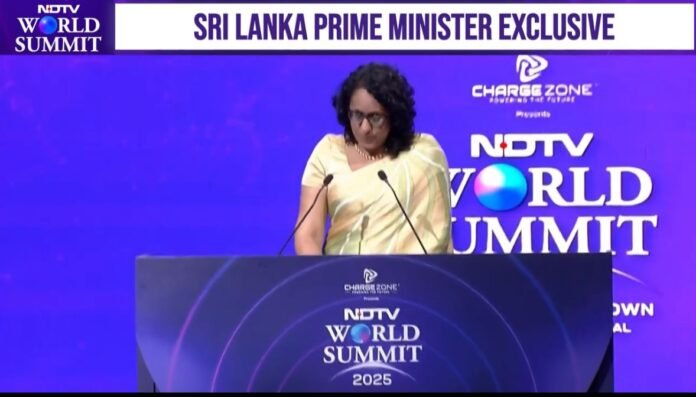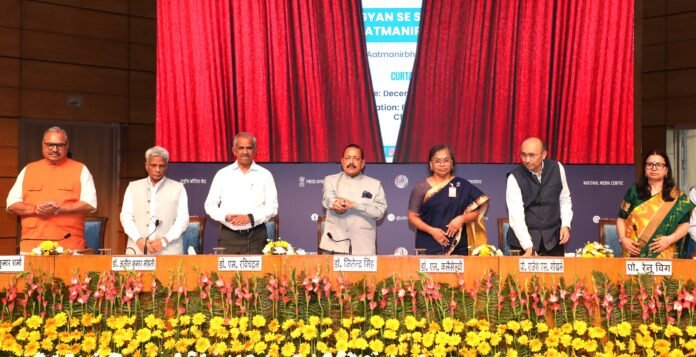Sri Lankan Prime Minister Harini Amarasuriya returned to the city where she once studied and delivered a stirring keynote at the NDTV World Summit 2025 in New Delhi. The summit, themed “Edge of the Unknown: Risk, Resolve, Renewal,” saw Amarasuriya praise Indian Prime Minister Narendra Modi’s “Neighbourhood First” policy as a cornerstone of South‑Asian solidarity.
From the inside of the Bharat Mandapam, Amarasuriya told the audience in “Steering Change in Uncertain Times” how India helped Sri Lanka during its 2022 economic crisis. Sri Lanka had slid into a recession, recorded 69.8 % inflation, and faced its first sovereign default since 1948. Modi’s government acted quickly, sending more than $4 billion in aid, a $500 million currency swap and deferred payments on the Asian Clearing Union. “India redefined leadership during our darkest hour,” Amarasuriya said, stressing how the help kept essential supplies flowing when reserves were low.
It was Amarasuriya’s first official visit to India after she took office in September 2024. She met Modi at his residence earlier that day, and the two discussed a wide range of topics—from education and women’s empowerment to innovation, development cooperation, and fishermen’s welfare. Modi shared the conversation on X, noting that the partnership shows “immense potential” for both cities that share a maritime and cultural heritage.
Amarasuriya was the third Sri Lankan woman to become prime minister, following Sirimavo Bandaranaike and Chandrika Kumaratunga. During the summit, she highlighted how Sri Lanka has rebounded since 2022. The country’s inflation is now single digits; GDP grew by 5 % in 2024, and foreign reserves reached $4.5 billion mid‑year. Debt restructuring has freed $3 billion, while another $25 billion has been re‑profiled over two decades. The International Monetary Fund’s $3 billion facility is pushing fiscal discipline, aiming for a tax‑to‑GDP ratio of 15 % by 2025. Tourism rose 66 % and remittances increased 11 %, lowering Sri Lanka’s debt‑to‑GDP ratio toward 102 % by year‑end.
Amarasuriya also remembered her own diaspora journey. Born in Galle in 1970, she studied at Bishop’s College in Colombo, then took an exchange year in the US. In 1991 she went to Delhi on an Indian scholarship, earning a sociology degree from Hindu College in 1994. She later completed a master’s in applied anthropology at Macquarie University and a PhD at Edinburgh. In Delhi that week, she was honoured with a guard of honour and toured Classroom 27, where the “Harini Amarasuriya Social & Ethnographic Research Lab” was opened. She said returning to Hindu College feels like “coming full circle,” reflecting on how India’s growth is a model for Sri Lanka’s own revival.
During the summit, she highlighted digitisation as a key driver of renewal. Sri Lanka is “digitising public structures,” moving toward e‑government procurement and digital IDs, and eyeing blockchain for land registries and AI analytics by 2025 to curb corruption. Speaking to an audience that included British Prime Minister Rishi Sunak and former Australian PM Tony Abbott, Amarasuriya stressed that “in risk lies opportunity, and in resolve, a renewed future.”
Amarasuriya’s remarks resonated with the summit’s theme of turning risk into renewal. She urged that leaders must view risks through the lens of vulnerable populations, emphasising the resilience of Sri Lankans after the COVID‑19 shock. Her blend of academic insight and political action demonstrates a clear vision for a stronger, more cooperative South Asia—an outlook that promises deeper ties between Sri Lanka and India, the region’s biggest trade partner and tourism source.
Source: ianslive
Stay informed on all the latest news, real-time breaking news updates, and follow all the important headlines in world News on Latest NewsX. Follow us on social media Facebook, Twitter(X), Gettr and subscribe our Youtube Channel.



